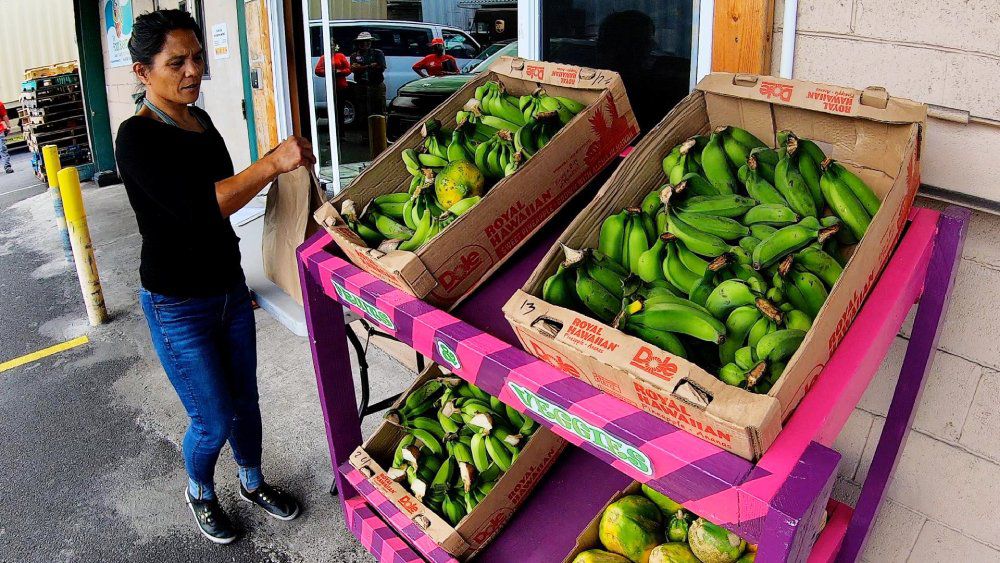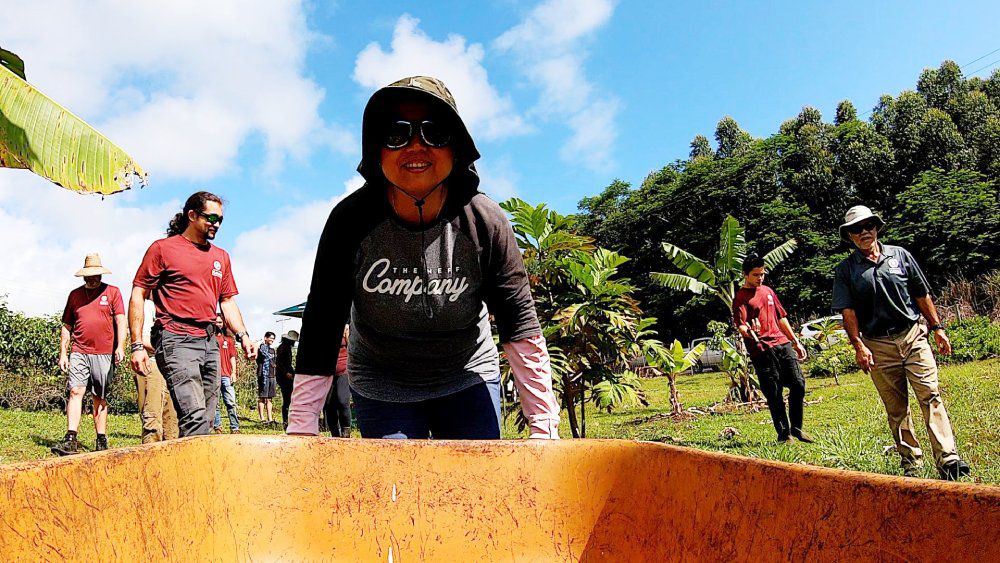HILO, Hawaii — On a sunny April morning, 15 Hawaii Community College students harvested over 50 pounds of bananas at its three-acre farm, Mauliola, to feed the community.
The students chopped down the banana trees, reducing them to mulch, then washed, dried and packed the fruit for delivery to the Hawaii Food Basket in Hilo.
“It’s been actually life changing to have a program in which you’re hands on every single day,” said student Kristen Decoito in a news release.
Hawaii Food Basket Director of Operations Enola Kaneta stated, “Our mission is to end hunger in Hawaii County on Hawaii Island. Hawaii Community College actually helps us to do that by providing fresh produce and vegetables to our community members.”
Since 2023, Hawaii CC has donated more than 1,000 pounds of fresh produce from the farm to the food bank.
A four-year agreement with landowner Honua Ola Bioenergy finalized in 2021 has enabled Hawaii Community College to farm and teach agriculture at Mauliloa with the stipulation that 90% of the food produced goes to families in need on Hawaii Island.
The project is a partnership between Hawaii Community College, the Hawaii Food Basket, and Honua Ola Bioenergy.
“This public-private partnership was to ensure that the program was able to produce food and get it back into the public domain,” said Assistant Professor Lew Nakamura.
“To have a project this big—three acres, 40 ʻulu (breadfruit) trees, maybe 60 banana trees in the ground—is kind of unprecedented for a small program like ours,” added Nakamura, who is also excited to train more students to grow food, who will then grow food for the community and teach others to do the same.
Kaneta said, “A lot of our emergency food customers actually come up daily for us and they love to have fresh produce that they can actually then go home and give their families and their keiki.”

Decoito will soon graduate with her associate degree in May and has plans to pursue a teaching degree. “Where there is hunger, we need farmers,” she said. “We need people to feed the community, and it’s good because we know if it’s grown here that it’s healthy, that it’s sustainable, and we know exactly the source of which it came from.”
There is, however, a huge problem facing the students and other farmers across the island—agricultural theft.
Nakamura said the situation will worsen next year when the ʻulu starts to ripen, but said theft has been ongoing. “We’ve had probably over 300 pounds, or at least 30 bunches of bananas, stolen from us from this parcel. Big problem—people taking food away from people who actually need it,” he said.
Nakamura is reaching out to the community to report any agricultural theft they witness.
In the meantime, Hawaii CC continues to produce farmers such as first-year student David Marquis. “I hope to start a small farm and become food sufficient and help other people too to obtain self-sufficiency in food,” he said.
Decoito added, “I just want people to understand that food is a very critical topic here in Hawaii and without farmers, we’re going to have a lot more problems in the future.”



